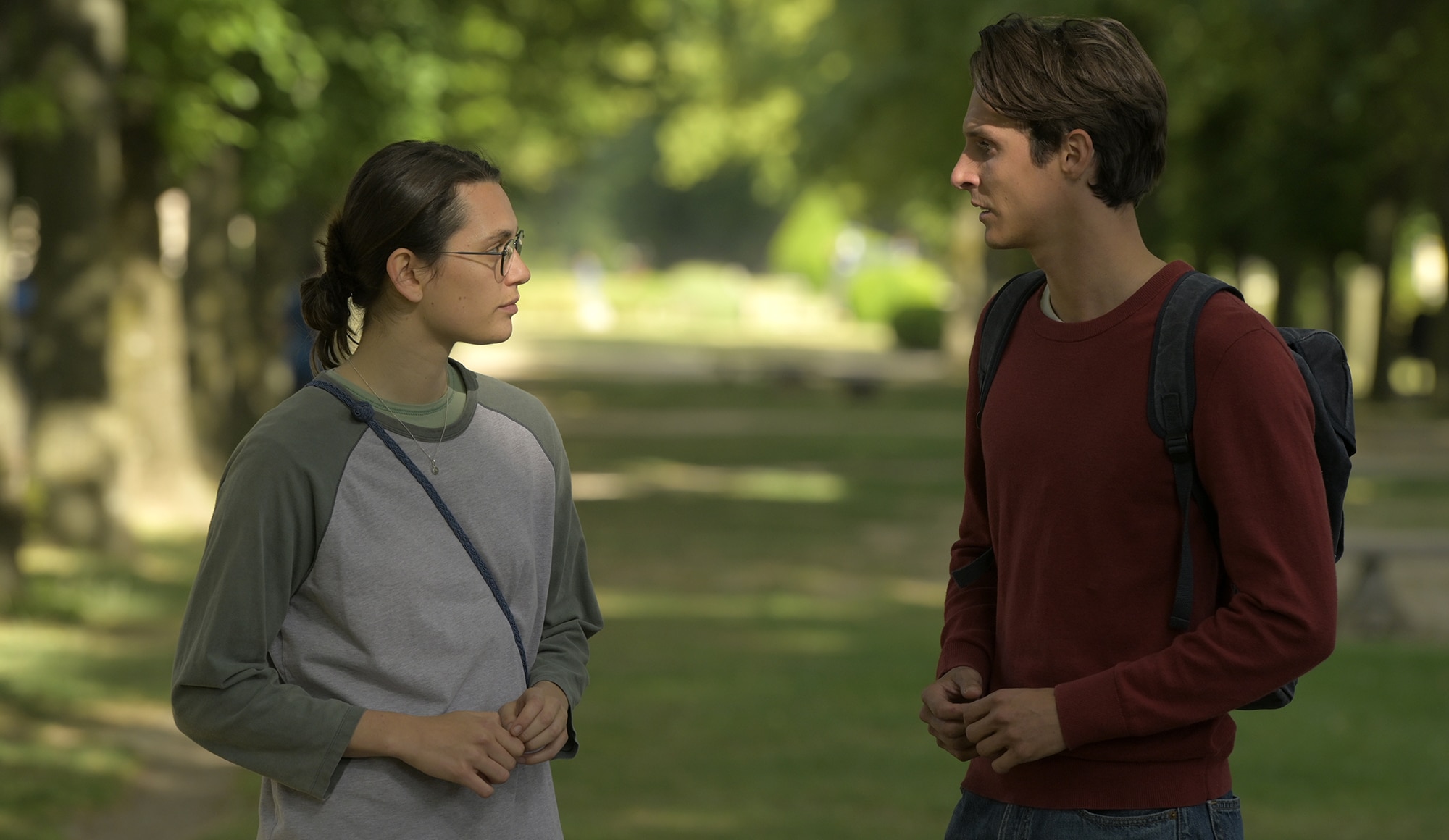




Dir.: Anna Novion; Cast: Ella Rumph, Jean-Pierre Darroussin, Julien Frison, Sonia Bonny, Clothilde Coureau; France/Switzerland 2023, 112 min.
Marguerite’s Theorem is a welcome addition to the asocial mathematician subgenre (A Beautiful Mind, X + Y, The Man Who Knew Infinity etc). Ella Rumph plays twenty-five-year-old PhD student Marguerite Hoffmann who has reached that momentous time in her academic career when she will present her thesis to the PhD supervisor Professor Werner (Darroussin).
Sporting slippers in the cafeteria and the lecture hall, Marguerite cuts an odd but genial figure, hassled by the male students, but – worse of all – contradicted in her thesis about a Hungarian mathematician, by another of Werner’s students, a boy called Lucas (Frison).
Humiliated in public, Marguerite leaves Mathematics behind, at least for a while, turning her talents to Mah-Jong which offers her a decent living. Clothilde Coureau is her meddling mother getting in touch with Werner in a bid to find out why her daughter has thrown in the towel. Maths wins out in the end. Marguerite joins forces with Lucas united in their quest to fathom out the Goldbach theorem, even turning the tables on Werner.
Relationships prove more difficult than science for Marguerite in this competitive environment and Novion leaves us in the dark as to who is rinsing whom (scientifically speaking). The mathematicians, including Marguerite herself, are much more interested in proving their colleagues wrong than discovering new dimensions – even if they all disagree. Lucas seems to be the arch-schemer, Marguerite bringing up the rear. Werner emerges a Mephistopheles-like character, forced to rely on his experience rather than his fading brain-power to get what he wants.
PD Anne-Sophie Delseries’ intriguing set design sees the flat Marguerite shares with Noa (Bonny) transformed into a black-board jungle covered in Algebra cyphers sometime resembling poetry. Maths is shown as a work of art, Werner still insisting that emotions and Maths are diametrically opposed. There are feint echoes of A Beautiful Mind, with moments of semi mental illness taking hold of all characters. Although occasionally veering on the predictable Marguerite’s Theorem makes up for it with new plot twists.
In the end it seems that Maths may not be as satisfying as love, but something close to it: to find a modus operandi we must to learn to trust ourselves and our partner – forgetting the Ego and letting go of past prejudices. But will Marguerite be able to overcome her past as the ugly duckling, and fly away, like a swan, with the prize of love.
CANNES FILM FESTIVAL | SPECIAL SCREENING 2023